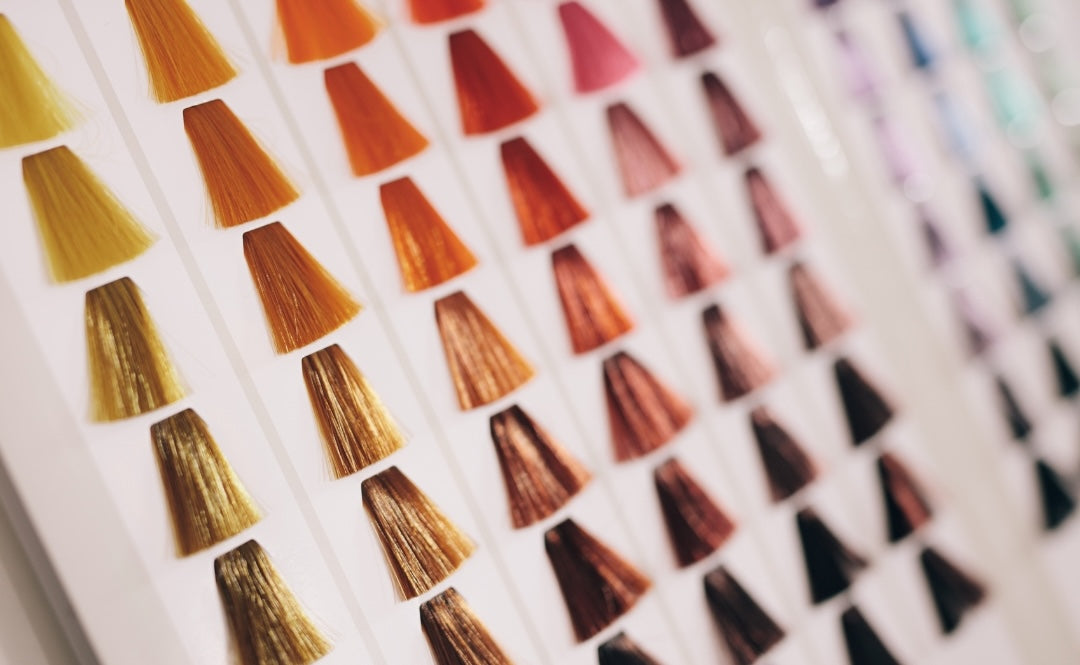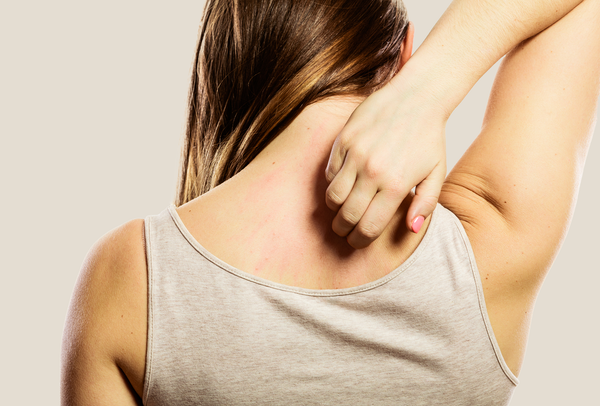Approximately 70% of women in the United States color their hair, with most opting for permanent color four to five times a year at home or the salon. Other hair-color options include demi-permanent (which lasts for up to 24 washes and semi-permanent, which generally sticks around for five). And then there are highlights, which generally use bleach to lighten select strands around the head. When an all-over dye is combined with highlights, this is called a double process.
Applying permanent or demi-permanent hair dye or bleach creates a chemical reaction that opens the outer layer of the hair, which allows chemicals to penetrate. There, dye alters the chemical makeup of the hair, and the result is a color change.
With so many people using hair dye relatively frequently, it’s common to ask, “Is hair dye bad for your hair?” An extreme example is going platinum, which involves bleaching the entire head to strip the hairs’ natural color and using a toner (an ammonia-free demi- or semi-permanent dye) to deposit the desired shade. If you ask anyone who’s ever gone this route, they are likely to tell you the great lengths they go to in order to minimize the damage caused by this intense processing and maintain the health of their hair.
The answer to the question “Is hair dye bad for your hair?” is (unfortunately), yes. However, the extent of potential damage can depend on several variables, such as how drastically you are changing your natural hair color, the amount of time color is left on the hair, the specific technique used, how you care for your hair daily, and more.
The Chemical Process of Hair Dyeing
Altering the hair’s protein structure through permanent and demi-permanent dyeing can cause side effects that include weakening of the hair, a lower tolerance for heat styling, reduced hair thickness, and increased follicle roughness. The short- and long-term effects of hair dye on your hair’s health can depend on your unique hair structure. If your hair is already thin or brittle, dyeing can make it even weaker. Thick hair can also experience side effects from dyeing because the dye may take longer to “lift” the hair proteins, and it may require longer applications.
Choosing the Right Products if You Dye Your Hair
With much of the focus on the ingredients found in permanent hair color, semi-permanent and temporary coloring products may be a safer alternative. Unlike permanent color that penetrates the hair shafts, semi-permanent and temporary color only coat the hair, so these products do not alter the structure of the hair. Depending on the type you choose, temporary and semi-permanent hair color washes out gradually every time you shampoo—which can range from a few to approximately 15 washes.
Hair Dye and Your Skin
Hair dye is also a common cause of skin rashes and reactions because of ingredients that are known irritants and allergens. This can pose potential problems for the skin, especially if it’s on the sensitive side—and this includes the scalp. Mild side effects like irritation can be soothed with cool compresses or an over-the-counter hydrocortisone cream, while an antihistamine like Benadryl can help relieve itching. In the case of more extensive rashes and swelling, it’s best to contact your dermatologist. If you have experienced a reaction to hair color in the past, consider a PPD-free dye since this ingredient is among the most common source of allergic reactions.
Mitigating the Health Risks of Hair Dye
To be frank, there’s a more important question than “Is hair dye bad for your hair?”—and perhaps we should be asking, “Is hair dye bad for your health? Unfortunately, some rather disturbing research has come to light.
A study published in 2019 found a link between hair dye and breast cancer. Now often referred to as the “Sister Study,” it involved more than 50,000 healthy women who had a sister with breast cancer. Researchers found a 9% higher risk of developing breast cancer in women who used permanent hair dye at least once in the 12 months before the study. The risk was even higher for African American women who had a 45% higher risk. (How often or how many years the women dyed their hair did not seem to matter). For the record, semi-permanent hair dye did not seem to have an elevated risk, except for women who used these products to dye their hair at home.
It’s important to note that it is unclear how the Sister Study findings translate to people who don’t have a family history of breast cancer. In addition, prior studies have shown conflicting results, with some finding a link to health problems while others did not.
Proper care for colored hair
Even if you only use hair color to camouflage grays, there are a few simple steps you can take to keep your hair healthy. First and foremost, choose gentle haircare products such as a sulfate-free shampoo that is less likely to fade your color prematurely. Conditioner is especially important for color-treated hair, and you may even want to use a deep-conditioning treatment at least once a week. (If you’re prone to breakouts, look for a non-comedogenic conditioner like SEEN's that effectively hydrates the hair without pore-clogging oils.) When styling, opt for a product that offers heat protection and provides the hair with a shield against UV rays and pollution.
We still have a lot to learn about the impact that hair color can have on our health, and more research is warranted considering how many people in the U.S. and around the globe use hair dyes regularly. We’ll be sure to keep you posted about any new research about hair dye and its effects on the hair as well as overall health. Stay tuned…
Needless to say, more research is warranted considering how many people in the U.S. and around the globe use hair dyes regularly. If you’re wondering if you should stop dying your hair, at this point it’s a personal decision.
We’ll be sure to keep you posted about any new research about hair dye and its effects on the hair as well as overall health. Stay tuned…




